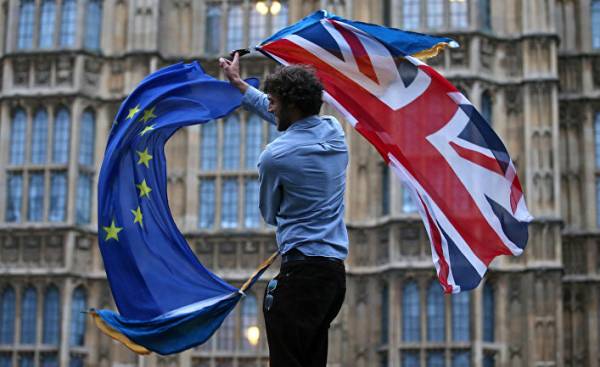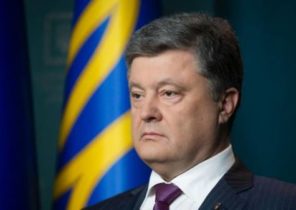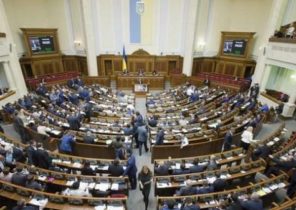
The British government is becoming less able to affect the logic of Brexia, which it itself holds. It goes to the fact that eventually the UK will either remain in the EU or come out in such transitional conditions that a little than will differ from full membership.
Three months ago the British Prime Minister, Theresa may, announced the early elections that were supposed to strengthen the most Conservative party in Parliament. Mei claimed that this will help her to negotiate withdrawal from the EU even stronger. But in fact the position after the elections proved to be weaker: the conservatives lost several seats, and the government may now depends on the support of ten MPs, the Democratic unionist party of Northern Ireland. At a reception in Westminster is increasingly saying that now to achieve normal arrangements for withdrawal from the EU is unlikely. Why? Let’s consider four possible outcomes of the negotiations between Britain and the European Union.
The first option is an agreement based on those principles, which may identified in January. That is Britain leaves the European single market and the customs Union has the right to decide who among EU citizens entitled to permanent residence, the court loses the opportunity to intervene in the decision of the British authorities, but between Britain and the EU is a “bold and ambitious free trade agreement”.
The Minister of foreign Affairs Boris Johnson has described this strategy as a desire to “sit on two chairs”: keep all the benefits of EU membership and at the same time to get rid of all shortcomings. But chief negotiator of the EU, Michel Barnier has already stated that it’s impossible. And there is no reason not to believe him: this deal will inevitably fuel anti-European sentiments in other EU countries.
That this agreement was acceptable to the rest of the EU, Britain would have to give at least part marked may items and is likely to pay a serious penalty for withdrawal (tens of billions of euros). The British Parliament is unlikely to approve such a deal: in the current scenario, quite a few votes against from the conservatives, and it will fail. More trade-offs also cause resistance, and both ends of the political spectrum. MPs eurosceptics will not like that in the compromise agreement remains too much the costs of EU membership. MPs euroenthusiasts, conversely, that losing too many benefits.
If in the June election the conservatives, as expected, may, got the advantage, then the government would be able to overcome this resistance of the Parliament. But conservatives such margin is not received. And now Mae will be almost impossible to negotiate an agreement that would suit both herself and the 27 EU countries, and the majority of members of Parliament.
The second likely outcome is the failure of the talks. This means that in 2019 the UK out of the EU without any agreements on further action. During the election campaign, may said that “no deal is better than a bad deal”. But in recent days cleared the unpleasant consequences of this option. Britain will be excluded from the most important European institutions in an unconditional benefit of which no one doubts. Among them, the Euratom, through which Britain receives radioactive material vital for the treatment of cancer patients, as well as the European Treaty on open skies, without which flights from the UK to Europe will be possible.
It is theoretically possible to agree on the continued participation of Britain in these particular institutions. But both questions fall under the competence of the European court of justice, which, as stated, may not have to play in Britain no role. Besides, there are other similar arrangements, the termination of which can greatly complicate the life of the British, not to mention a larger trouble which threaten the British economy in the event of withdrawal from the EU without a deal.
Hence, a compromise is unlikely, and exit without a deal is a disaster that must be avoided at all costs. What remains?
There is a third scenario in which Britain leaves the EU, not allowing these and other difficult questions, and simply maintains the current arrangement for a transitional period of, say, three years. In other words, Britain will be subject to the rules of the common market, Euratom, the Treaty on open skies and so on, until on these issues is not a final agreement is reached. Accordingly, the British will have to save and freedom of movement between Britain and other EU countries, and also continue to pay contributions to the EU budget.
Against this option we can vote some conservatives, but the labour party will support it or just wonderdude from voting: this is exactly what they want. In the election Manifesto of the labour party in 2017 saying that the party “accepts the results of the referendum”, but insists on retaining all of the benefits of EU membership.
Someone can say that the transitional period would only postpone disaster, but not prevent it. However, nothing prevents to extend this transition period to infinity. Rather, the question is, will agree to such other members of the European Union. If Yes, then this is the most likely outcome.
But if the EU does not accept such decision or attached conditions unacceptable to the British Parliament, there is a fourth option, in which the UK will simply remain in the EU. About this possibility many parliamentarians say privately, and some publicly. Among them sir Vince cable, the new leader of the liberal democratic party, similar to that expressed by former Prime Minister Tony Blair.
Such a scenario will no doubt please the majority of EU countries, and if the British government will recommend this option to the parliamentarians, the majority will support it. Dissatisfied, of course, there are the Conservative and the labour party, but their voices can be compensated by the support of the liberal Democrats and the Scottish national party who do vote to remain in the EU.
The question is, under what conditions it could reach such a scenario, which means the real threat of a split in the Conservative party. However, if compromise and transitional arrangements will be unattainable, Britain will face a hard choice: either to completely break off relations with the EU, which would create enormous difficulties for the economy, and indeed to the daily life of the British, or remain in the EU.
And if the choice in 2018 is that it will, then public opinion in the UK may change and start to support not Brakcet, and the preservation of EU membership. It is that prospect that makes today representatives of almost all British parties to doubt that the country will leave the EU.
Peter Kellner is a journalist, political analyst, former head of the research company YouGov







